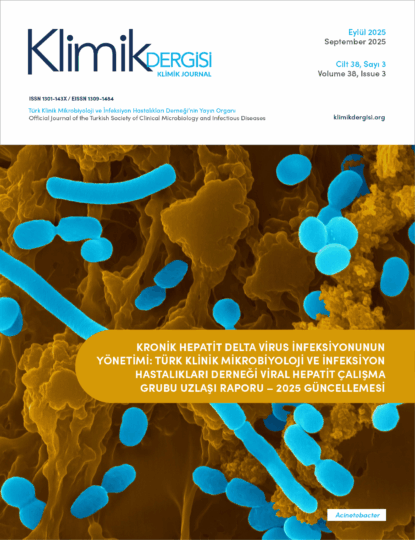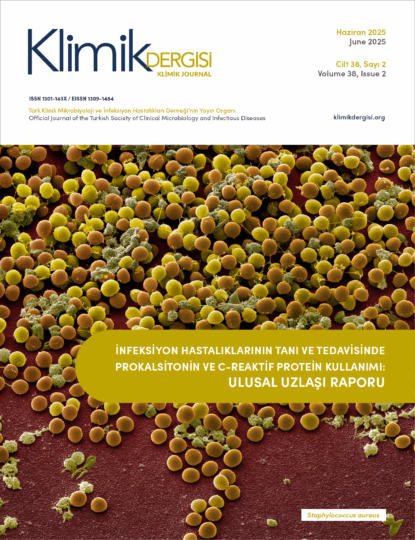Early Release / Consensus Report
Use of the BioFire® FilmArray® Pneumonia Plus Rapid Syndromic Multiplex PCR Assay in Pneumonia Patients – An Expert Opinion Report
Most Read
Abstract
Objective: This study aims to develop a valid and reliable Turkish anti-vaccination scale. Determining the level of vaccine opposition in society is crucial for effectively combating infectious diseases. The study focuses on developing a measurement tool that clearly distinguishes between vaccine hesitancy, vaccine refusal and vaccine opposition concepts.
Methods: Two cross-sectional studies were conducted using purposive sampling. The pilot study, a 52-item questionnaire was distributed to 260 participants via Google Forms, and Exploratory Factor Analysis (EFA) was performed. In the second study, conducted for Confirmatory Factor Analysis (CFA), data were collected from 509 participants.
Results: Following the EFA, the initial 52-item form was reduced to 35 items. The CFA confirmed a five-factor structure for the anti-vaccination scale, comprising the Protective Value of Vaccines, Distorted Science, Vaccine Substitutes, Vaccine Hesitation/Rejection and Anti-Vaccination. The total explained variance of the scale was 85.057%, and Cronbach’s alpha for the entire scale was calculated as 0.985, indicating high internal consistency.
Conclusion: The developed scale successfully differentiates between vaccine hesitancy/refusal and anti-vaccination, enabling an accurate assessment of the level of anti-vaccination within society. This study represents the first attempt in Türkiye to develop a dedicated anti-vaccination scale. Measuring vaccine opposition levels will provide valuable insights for designing and implementing targeted action plans to combat vaccine hesitancy and refusal.



































































































































